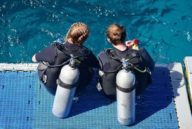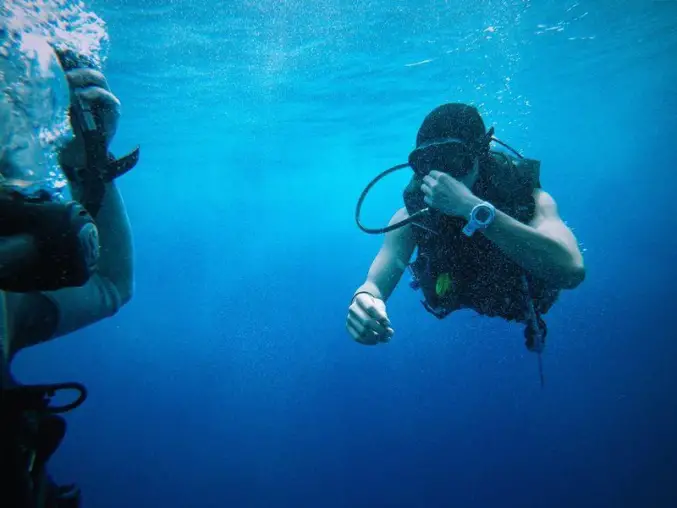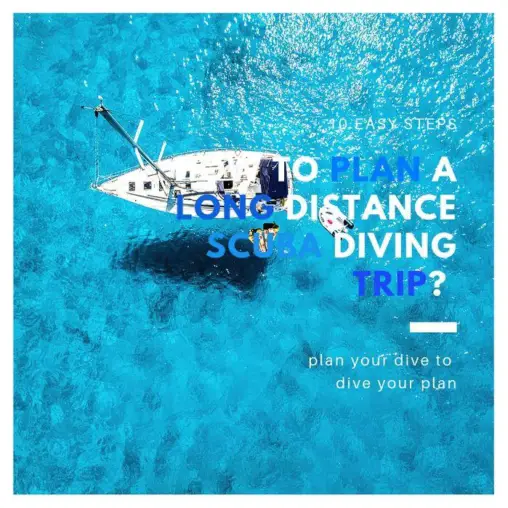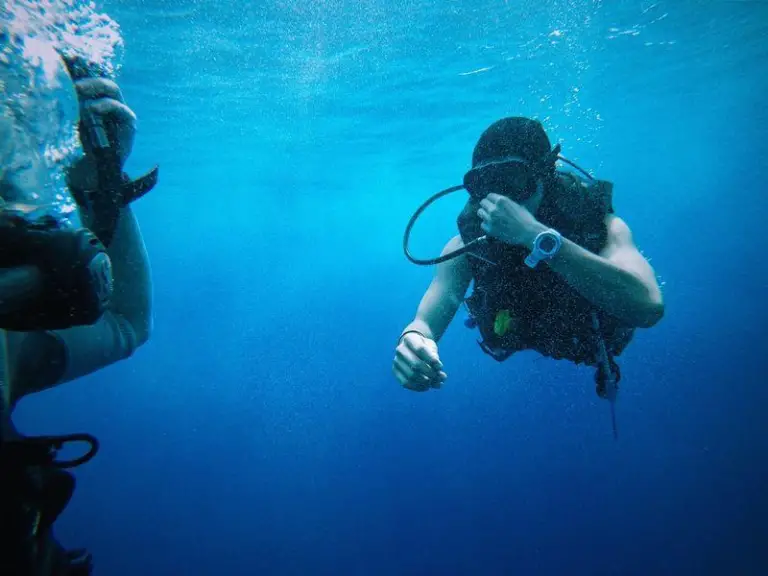
Back when I took my first diving course, a lot of time before I got my certification, I remember I was super excited and wanted to tackle as many dives as I could in one day. However, I also remember my instructor telling me how it was crazy to try and do 6 dives a day.
It might be important to remark that I had never scuba dove in my life at that point, and once I hit the water I realized when if I wanted to I wasn’t going to be able to.
The thing is, it isn’t only physically exhausted, but mentally too.
So, how many dives can you do in a day?
I guess it depends a lot on a bunch of different factors. If you want a number per se, that number would be that 5 or 6 times in a day is too much. This is the universally known number because making six average dives in one day is a lot, even for an experienced diver.
However, the answer lies more on the dives themselves. What determines the number of times you can dive in one day is actually dependent on your nitrogen intake.
Also, You must take as consider scuba diving age restrictions!
Your nitrogen intake depends on how deep you have gone, how long you have stayed down, how long you waited in between dives, how many dives you had done previously in the day, and how many dives you had done in the preceding days (residual nitrogen).
When I did my Instructor Course there was a day in which we actually never left the water, however, we would only dive for 10 to 15 minutes. So, I did a lot of dives that day, but they were very short and barely deep.
The thing about diving is that, even if you have a hell lot of fun doing it, it puts your body in stress.
First, there is physical stress. Though diving is done for leisure, it is very physically straining. Something my newbie person didn’t think of and discovered when I was totally energy drained after my first lesson. Just the action of diving and going in and outputs a lot of stress on your system, which tires you out.
Not only that but because of the pressure, your ears get very stressed too for the compression and decompression. It can also be pretty damaging for your ears.
You also get mental stress, especially if you are new to the sport. There are a lot of factors to take in and even if you aren’t registering it, your brain definitely is.
The whole thing makes you very mentally tired, and after a bunch of dives, you are not as fresh as you were and you are prone to make mistakes.
So, if you want to dive more than five or six times a day, even if you are a professional you can’t go on full, very deep dives. You’ll need them to be shorter than the normal dive.
To Save Your Dive REcord I suggest You Check Best Dive Log Apps
What happens if you dive too much?
You get close or reach what is known as a no-decompression limit. The no-decompression limit is the amount of time a diver can be at a given depth. The thing is that as you dive more you are likely to decrease your tolerance for the nitrogen.
How no-decompression limit works are that you absorb nitrogen since gasses compress underwater, the compressed nitrogen is trapped in tissues and as you ascend the nitrogen will slowly expand and decompress.
This causes what is known as decompression sickness, in which your body doesn’t have enough time to eliminate the expanding oxygen and it forms bubbles.
Doing many dives a day increases your likeliness of getting this disease because your body is more tired as the dives go by and take a longer time to eliminate the nitrogen. You are also likely to have residue nitrogen that makes the elimination process harder for your body.
Decompression sickness is extremely dangerous, as it can cause tissue and nerve damage. Or even, in some extreme cases, the decompression can cause paralysis or death if the bubbles are in the brain.
Because of the same reason, you can get Barotrauma, in which tissues that are usually filled with air (ears, sinuses, dental roots, and lungs) get damaged for the water pressure. Diving more than 5 times a day puts a lot more pressure on these issues and makes them prone to being damaged for the constant pressure they are facing.
Barotrauma is also linked to arterial gas embolism. You are also more likely to get it if you dive too many times in one day.
If air bubbles get into an artery, they tend to cause a blockage that affects your organs. This blockage is called an arterial gas embolism, because it has effects similar to an embolism, like a heart attack or a stroke.
Finally, and probably more commonly, there is nitrogen narcosis. Diving a lot of times in one day creates a significant amount of residue nitrogen in your body.
When there is too much nitrogen held in the brain you have the tendency of getting confused and dizzy, similar as if you had been drinking alcohol or drugs.
You are likely to make poor decisions and lack of judgment, which is extremely dangerous if you are diving.
So, in conclusion. Your body can only take so much pressure in one day. If you don’t let it rest and eliminate nitrogen, it is likely to get very weakened and prone to making you suffer from any of the previously mentioned diseases.
I know that once you start diving you really don’t want to stop, the experience is super fun and always leaves you wanting more, however, you always need to be considering how it can affect your health.
That said, don’t ever miss chances to dive because you are afraid of any of these, as long as you do it moderately and carefully, you’ll have a lot of fun, take my word for it.
You Can Check :









